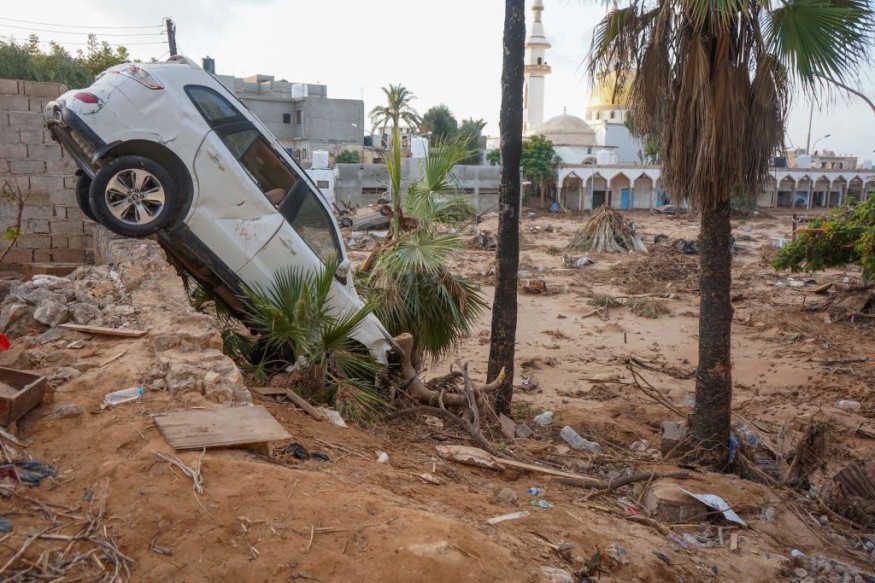As the search for the victims of the deadly flood in Libya entered its sixth day, more bodies were recovered from the sea.

The World Health Organization said that 3,958 bodies have been recovered and identified, while 9,000 more are still missing.
The flood submerged Derna, driving hundreds of people and homes out to sea when two upstream dams burst under the impact of the hurricane-force storm's relentless rainfall.
Officials estimated the overall death toll at more than 11,000 people, despite conflicting reports.
"We are saddened by the unspeakable loss of thousands of souls. Our thoughts are with the families who have lost loved ones, as well as with all of the affected communities. We are committed to providing the necessary support to restore health services for the affected population in eastern Libya," said Dr. Ahmed Zouiten, WHO Representative in Libya.
International aid
The WHO announced the arrival of 29 tons of assistance in the eastern city of Benghazi, enough to help 250,000 people.
Essential medicines, trauma and emergency surgery supplies, and medical equipment are among the supplies donated.
There are also body bags for the deceased's safe and respectful movement and burial.
Saudi Arabia reported the departure of its first aid flight to Libya, while Russia confirmed the arrival of the third of its relief planes, bringing a mobile hospital.
The Italian Embassy in Libya said an Italian naval ship has docked in Derna with supplies including tents, blankets, water pumps, and tractors.
Second humanitarian crisis
Aid organizations such as Islamic Relief and Doctors Without Borders (MSF) have cautioned that the approaching time may see the development of disease as well as significant challenges in getting aid to the most vulnerable people.
Following the flood, Islamic Relief warned of a "second humanitarian crisis," citing the "growing risk of water-borne diseases and shortages of food, shelter, and medicine."
Salad Aboulgasem, the organization's deputy director of partner development, said that thousands of people do not have anywhere to sleep and they also do not have any food.
Aboulgasem noted that in conditions like this, diseases can quickly spread as water systems are contaminated.
"The city smells like death. Almost everyone has lost someone they know," Aboulgasem said.
The MSF announced the deployment of experts to eastern Libya to assess water and sanitation.
According to the United Nations, over 1,000 victims have been buried in mass graves, prompting warnings from relief organizations about the potential of contaminating water or inflicting mental pain on the families of the deceased.
Hayder Al-Sayah, the head of Libya's National Centre for Disease Control, said corpses posed minimal concern unless they were carrying diseases.
But the reported cases of diarrhea had climbed to 150 from 55 on Friday due to people drinking polluted water.
Libyan authorities have mainly closed off Derna to the residents in order to give room to emergency assistance personnel and to prevent standing water from being contaminated.
Only search and rescue personnel are permitted to enter the flood-affected areas of town.
Many residents have already voluntarily departed the community.
Related Video:
© 2025 NatureWorldNews.com All rights reserved. Do not reproduce without permission.





